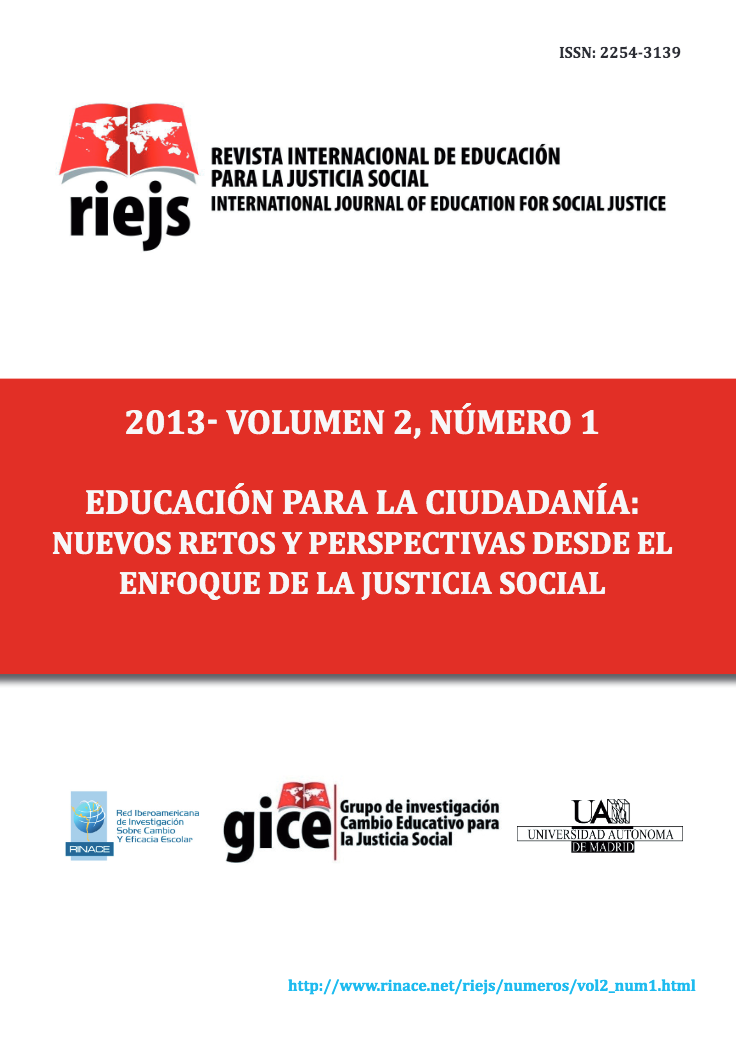Special Issue
Inclusive Citizenship and School Enviroment in Schools: Reflections of Chile Data PISA 2009
Published
June 17, 2013
Keywords:
Citizen participation, Citizenship education, School climate, Inclusive education, Inclusive schools.
How to Cite
Maiztegui Oñate, C., González Navarro, M., & Santibáñez Gruber, R. (2013). Inclusive Citizenship and School Enviroment in Schools: Reflections of Chile Data PISA 2009. Internacional Journal of Education for Social Justice, 2(1). https://doi.org/10.15366/riejs2013.2.1.004
Copyright (c) 2015 Revista Internacional de Educación para la Justicia Social (RIEJS)

This work is licensed under a Creative Commons Attribution-NonCommercial-NoDerivatives 4.0 International License.
Abstract
This article presents an analysis of the relational aspects in Chile´s school system. Schools are considered one of the main scenarios where people may learn citizenship. It is also argued that school climate is a crucial element to develop human relationships and school attachment. Regarding citizenship education, the school climate can foster opportunities to put civic competencies into use through participation in “real life” situations. The article draws on a special analysis of the Pisa 2009 data base (OECD, 2009), which considers data obtained from 5669 secondary education students in 200 schools. We examine those data l in the light of the inclusive citizenship model (Kiwan, 2008) and in the context of Civic Education Study (CIVED) by International Association for the Evaluation of Educational Achievement (IEA) (Ministerio de Educación de Chile, 2009). The analysis points out some methodological challenges to enhance the school climate, civic knowledge and participation in schools. Data indicate that students feel particularly connected to their schools. This engagement could provide opportunities for improving citizenship education.Downloads
Download data is not yet available.
